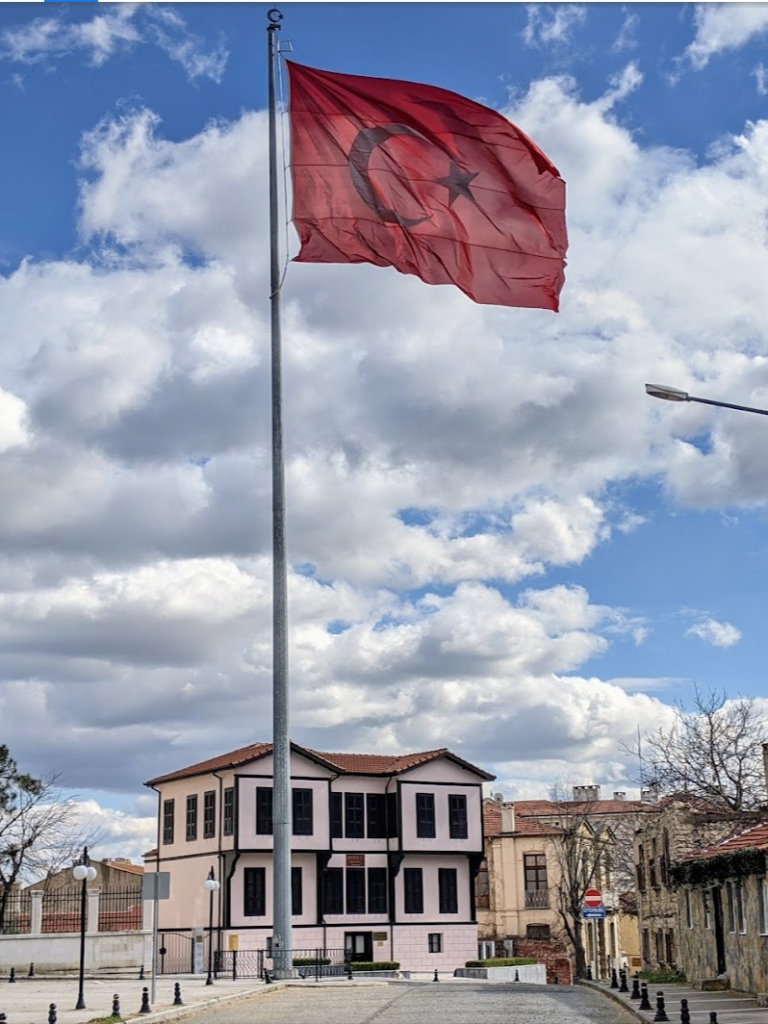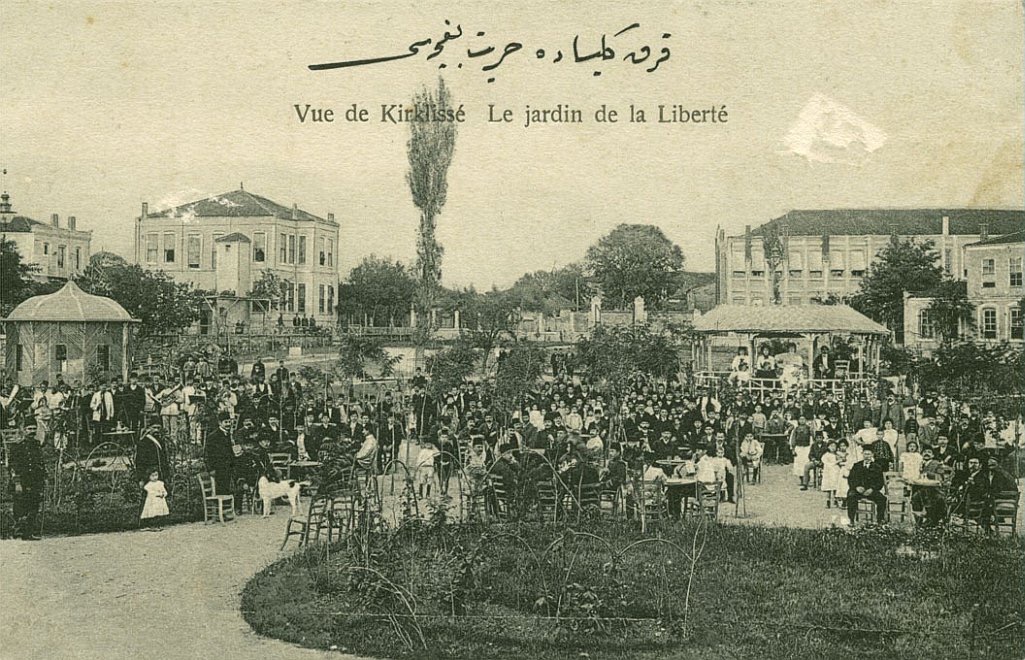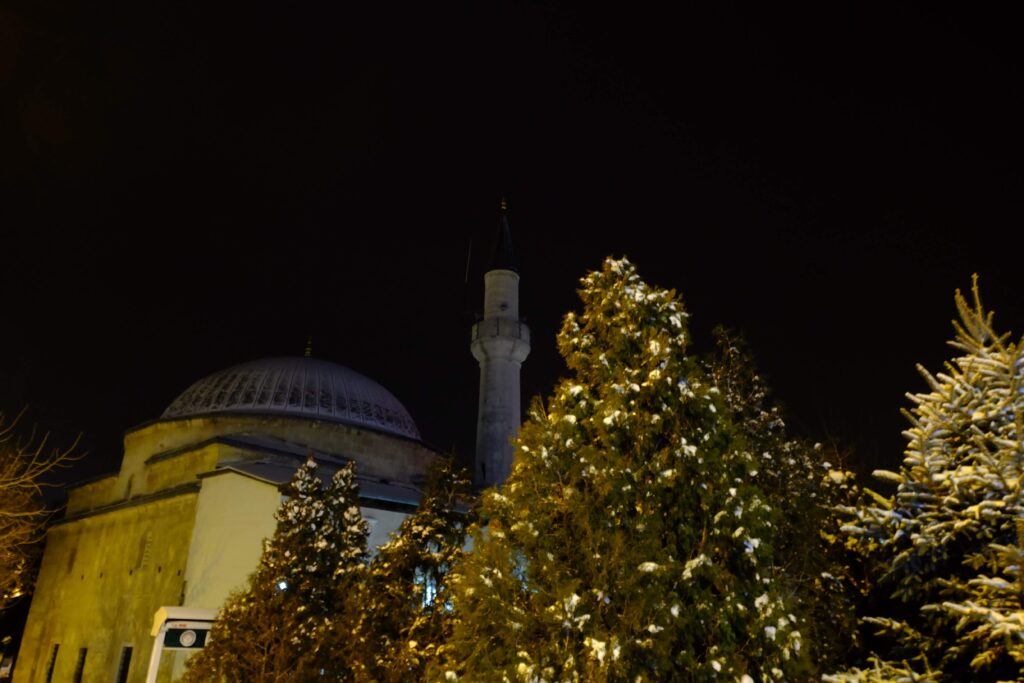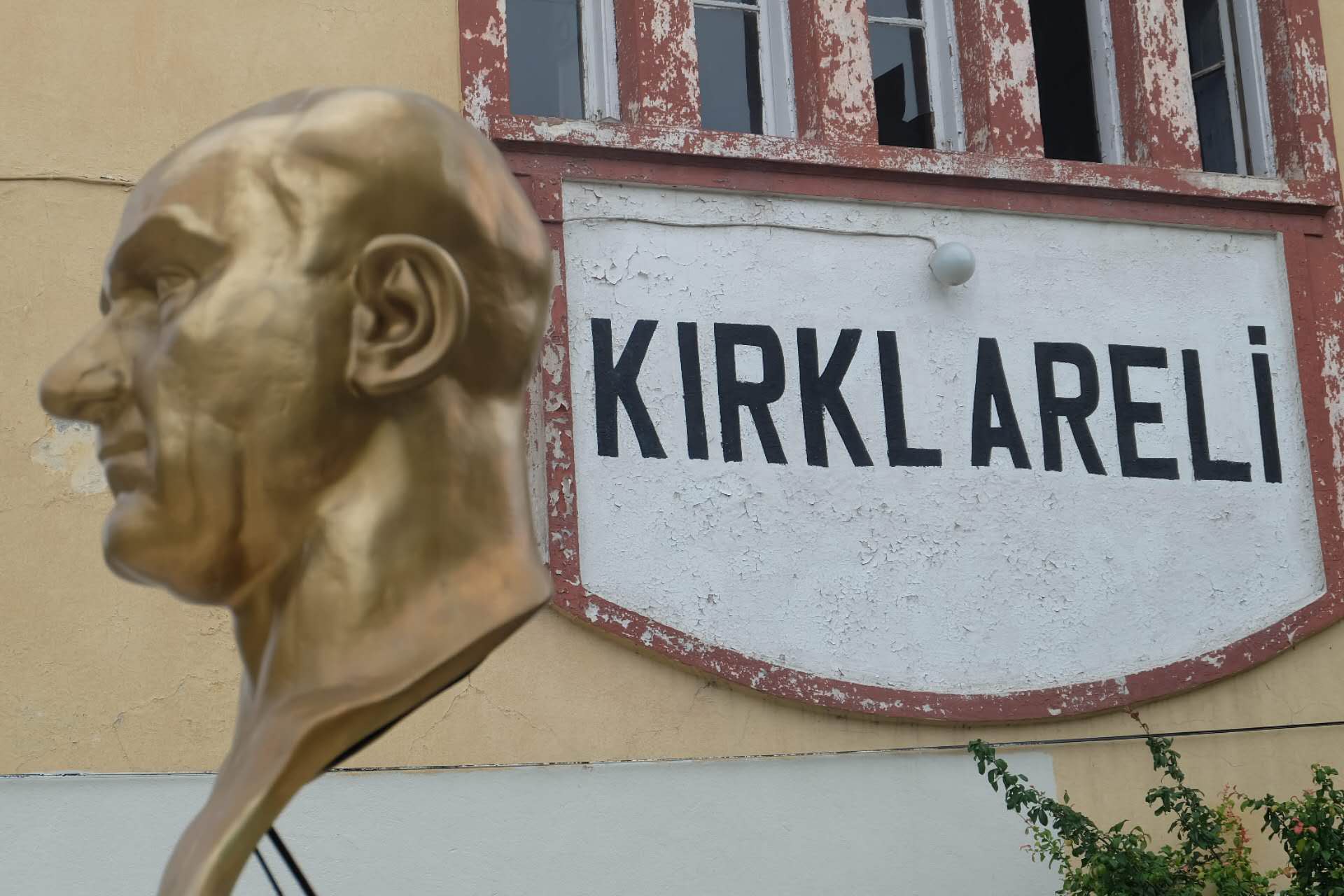Kırklareli is a city located in northwestern Turkey, in the Eastern Thrace region near the border with Bulgaria. It is the capital of the Kırklareli Province, occupying a strategic location on the Via Militaris trail between Constantinople and the Danube River.
The city is situated about 240 kilometers northwest of Istanbul, and 200 kilometers southeast of the Bulgarian capital Sofia. It is located in a valley and surrounded by forests, with the Balkan Mountains to the north and Strandzha Mountains to the south.
Kırklareli is located within the historical region of Thrace, which has been ruled by successive empires including the Byzantine Empire, Bulgarian Empire, and Ottoman Empire. The city’s location on the Via Militaris resulted in a complex history reflecting influences of different cultures. Today Kırklareli is a center of trade and transportation between Turkey and other Balkan countries.

The city’s strategic position on the Via Militaris and at the crossroads of empires gave it a complex multi-cultural history that is reflected in its architecture, culture, and name. Kırklareli’s location amidst the Strandzha and Balkan mountains also gave it symbolic religious significance, with the number 40 carrying special meaning. The city’s name, origins, and history have been shaped by its geographic position and role connecting East and West.
The name of the city of Kırklareli contains clues to its long and complex history.

Tracing its origins to the Greek “Saranta Ekklisea” and its evolution through translation, the city’s name reflects the enduring influence of Byzantine rule and the transformations in language, religion, and politics that shaped this region.
Decoding the Meaning:
The Greek name “Saranta Ekklisea” contains clues that point to its origins during Byzantine rule. The Greek words “σαράντα” (saránta) meaning “forty” and “ἐκκλησία” (ekklēsía) meaning “assembly” suggest it refers to a gathering of 40 prominent individuals or an administrative body.
During the Byzantine period, the word “ἐκκλησία” (ekklēsía) was used to denote council meetings, organizations, and government institutions. A “Saranta Ekklisea” could have referred to a council of 40 persons, or to the meeting place of a governing body. It may have also literally referred to 40 churches, symbolically representing the number of people in an administrative assembly.
The name’s Greek etymology and references to religious and governmental institutions point to its origins during Byzantine rule. After the Ottoman conquest, it was translated literally as “Kırk Kilise” meaning Forty Churches, which evolved into the modern “Kırklareli”. However, the original Greek name may have carried symbolic meaning representing the city’s administration and rule during the Byzantine Empire. The name is a clue into the region’s historical governance and the influence of Greek language and culture.

A Glimpse into the Past:
The name Kırklareli provides a glimpse into the city’s long and complex history. Tracing the modern Turkish name to its origins in the Greek “Saranta Ekklisea” leads us back to the Byzantine period, when Greek was the dominant language of administration and culture. The evolution of the name through translation and time demonstrates the historical changes in politics, language, and identity that shaped this region.
Under Byzantine rule, the area that is now Kırklareli was part of the thema of Macedonia, governed by Constantinople. The city’s name likely originated during this period, representing religious or governmental institutions under imperial administration. After the Ottoman conquest in the 14th century, the name was translated into Turkish as “Kırk Kilise”. This translation preserved the symbolic meaning of the number 40, but lost the institutional associations of the original Greek.
Over centuries of Ottoman rule, the name evolved to “Kırklareli” through the natural changes of language. However, this name still maintains historical ties to its Byzantine origins, demonstrating the enduring influence and legacy of Greek culture and imperial administration. Even while the region became more culturally Turkish, the city’s name retained subtle clues to its late antique past.
Kırklareli is a palimpsest, with layers of history embedded in its name, architecture, and culture. The origins of the name “Saranta Ekklisea” provide insight into the administrative and religious institutions of the Byzantine thema of Macedonia. Translated and transformed over time, the name is a microcosm of the historical changes in politics and identity that shaped the city and its region. An exploration of Kırklareli’s name offers a glimpse into its multi-cultural past.
A Symbolic Meaning:
The number 40 carried religious and symbolic significance that shaped the interpretation of “Saranta Ekklisea”. Translated literally as “Forty Churches”, this name may have represented the number of people in an administrative body or assembly rather than a precise count of religious institutions.
In Christian and Jewish traditions, the number 40 represents a time of trial, purification, and change. The Bible describes 40 days of rain in the flood, 40 years in the wilderness, and 40-day fasts. The city of Kırklareli could have taken on this religious meaning, representing a sacred period of transition or spiritual cleansing.
The number 40 also signified an assembly in Byzantine adminstration. The Boule consisted of 40 council members and there were 40 Scholae, the administrative districts of Constantinople. The name “Saranta Ekklisea” may have symbolically evoked the authority of imperial rule in a region. This symbolic association would have endured even as the city came under Ottoman administration.
Through translation, the symbolic meaning of the number 40 became more literal but was not entirely lost. The Turkish “Kırk Kilise” also refers to 40 churches, retaining this sense of religious significance. And “Kırklar” can still refer to an assembly of 40 prominent individuals. The name of Kırklareli continued to represent both the city’s sacred importance and its governance through an assembly.
While the name changed in language, it maintained symbolic ties to its Byzantine origins. The variety of meanings associated with the number 40 gave layers of significance to “Saranta Ekklisea” and its translations. Kırklareli’s name is a clue into the city’s historical identity, representing its religious role, administrative status, and spiritual transition under successive empires.
In summary, there is significant evidence that the origin of the name Kırklareli lies in the Greek name “Saranta Ekklisea” meaning “Forty Assemblies”, used during Byzantine rule. The Greek roots of the name, its literal translation to Turkish, and the similar meanings of related Turkish phrases all point to this theory. The name evolved over time through translation and linguistic changes but may have retained its original meaning.
D.E.Erisen
Nestled between forested mountains and the border with Bulgaria
Kırklareli occupies a picturesque setting in northwestern Turkey. The Strandzha Mountains rise to the north, covered in oak, beech and pine forests with waterfalls and limestone formations. To the west lies the Bulgarian border, just 60 kilometers away from the city center.
This proximity to the border, along with its location along the Via Militaris connecting Constantinople and the Danube, contributed to Kırklareli’s historical role as a strategic trade route. Even today, the city continues to profit from international commerce and transit between Turkey and Bulgaria.

South of the city, the Ergene River flows past medieval bridges and picnic areas where locals enjoy the natural surroundings. The scenic Kıyıköy Waterfall is also located just 25 kilometers from Kırklareli, amidst the mountains and forests surrounding the city.
This lush landscape not only provides opportunities for outdoor recreation, but also shapes the character of Kırklareli as a place rooted in nature. The mountains have ensured the city’s separation from wider trends, allowing a unique culture to emerge at the crossroads of empires. Today visitors can experience Kırklareli’s distinct historic character set amidst stunning scenery.
